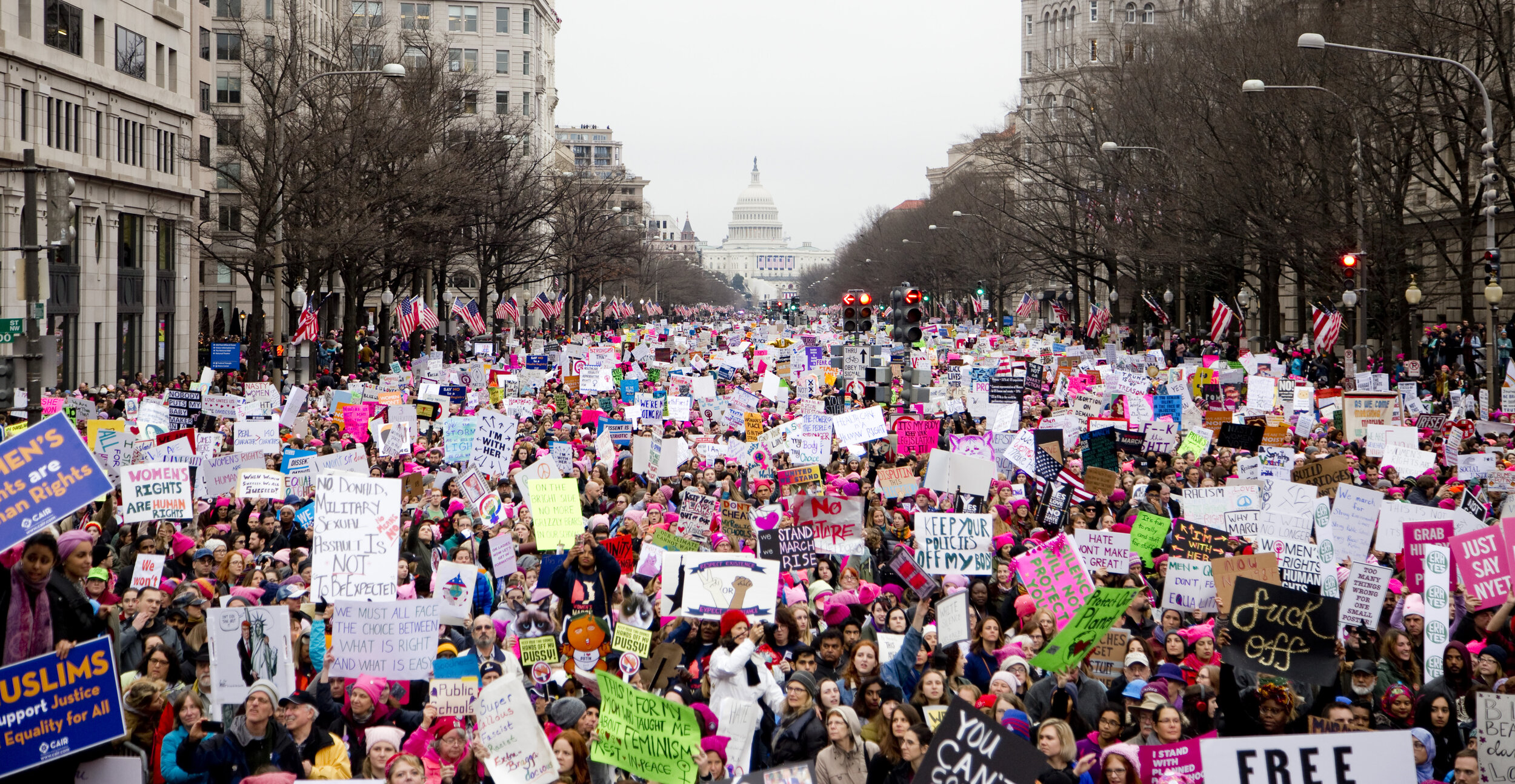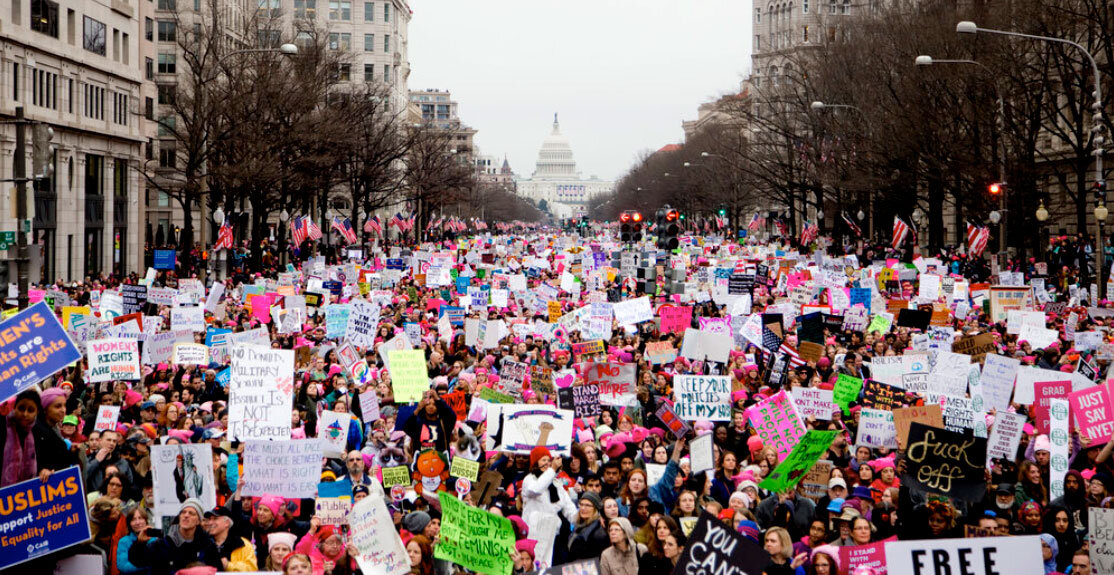
Columnist Maryam Zar argues that women will define the battle for the soul of the United States, at a time when conservative vs. liberal values literally mean the difference between life and death. If the latter prevail it would mean that the U.S. is finally in the real game—think of what women leaders are accomplishing elsewhere, for example New Zealand’s Jacinda Ardern taking charge of the coronavirus crisis, with only 25 deaths in N. Zed as of October 15, 2020, or the accomplishments of women leaders such as Sanna Marin of Finland, Angela Merkel of Germany and Tsai Ing-wen of Taiwan. The US is still in the 1950s as far as this goes, and Kamala Harris as vice president, and potentially President of the United States, could signal a sea change, at long last. —TMR
Maryam Zar
The nomination of a conservative federal judge for the Supreme Court seat vacated by Ruth Bader Ginsberg, and the ensuing nomination hearing on a Republican-controlled Senate floor, with the historic vice presidential candidate on the Democratic ticket, Kamala Harris, as a sitting senator, brings into sharp focus the Trump legacy on women and their place in our 21st century American society.
From the first days of its tenure, the Trump administration drew a line in the sand for women. Following his inauguration in January 2017, women took to the streets of major cities in record numbers to protest the insistence that their rights were inherently less worthy of protection. In America, this protest against a clear and present threat to hard won rights had its nexus in the right to privacy—as codified in Roe v. Wade. This was the landmark Supreme Court case in 1973 that granted American women the limited right to terminate an unwanted pregnancy, under their 14th Amendment right to privacy. It gave women the elemental prerogative to control how they procreate. The court considered prevailing religious and moral views in the political discourse of the time, but decided they were not applicable to the judicial sphere. Fast forward 40 years, and we are still unsettled about the footprint of religious dogma, as applied to the politics of women.
If women get paid 65 cents to the dollar, it is rooted in the conservative belief that they are less responsible for the costs of living; if women have less control over the baseline purpose of their bodies, it is because conservatives believe they are vessels for procreation; if women ask for childcare to help advance their careers, they are told by conservatives that they are uncaring or incapable; if women are violated or sexually assaulted, they are excoriated for dressing inappropriately or inviting the violation – and ultimately told by conservatives to endure it. For all these reasons and more, nearly four years ago at the onset of a Donald Trump presidency, women took to the streets with pussy hats and signs of protest. Some saw those hats an emblem of empowerment. Some saw them as symbolic of a mockery.
In the Senate chambers this week where Amy Coney Barrett, a mother of seven, sat to be judged by 100 men and women with ideologies that spanned the political spectrum, she was grilled most poignantly by another woman—a lawyer and prosecutor herself—with no children, on the cusp of making American history as the first black and the first woman vice president of the United States. This moment defines us as a nation. This moment where a conservative judge being surreptitiously confirmed for a lifetime appointment to the highest court of the land faces off against a challenger who represents the national march toward a more progressive society marked by a diversity of voices in the public discourse, represents the battle for the soul of America. The war of ideology between them is the battle between liberalism and conservatism, and the outcome will define the role of modern America in the social revolution of our time.
The message of intolerance propounded by Donald Trump and carried out by his appointees has crystallized over four years to define an ideology that rejects progress and begs for sameness. It was the counter-reaction to the election and presidency of Barak Obama—a Black progressive president who believed that the diversity of this nation was its greatest strength. He pushed the nation toward a more inclusive agenda, he appointed the first Latina and the first Jewish woman to the Supreme court, he appointed the first black man as Attorney General of the United States, he spoke about peace to Muslim students in Cairo, and bowed in deference to Japan’s Emperor in Tokyo. He brought Americans into the Paris Climate Accords, forged a tentative plan of action with the Iranians and pressed the Israelis for a less aggressive posture in the Middle East. No part of this boded well in white supremacist circles, where jobs and opportunity were dwindling and the culprits were diversity and inclusion. The instinct to rail against change was already brewing before Donald Trump clinched an electoral victory. His inauguration gave a bold green light for this otherwise latent movement brewing beneath the surface, to brim to the fore.
Days before an election where millions of Americans have already voted, we see conservatism making one last stand as a political majority, with a female nominee delivering the concessionary words of a seasoned politician, promising no preconceived outcomes as she prepares to take a judicial oath that allows her to impact the course of our collective future. Questioning her from the dais is the voice of a new generation—a black woman with the power to clinch a perch that can finally challenge sameness and set us on a course to a more fundamentally inclusive society, for generations to come.
This is the battle of our time, and it will be fought intellectually, by women.




